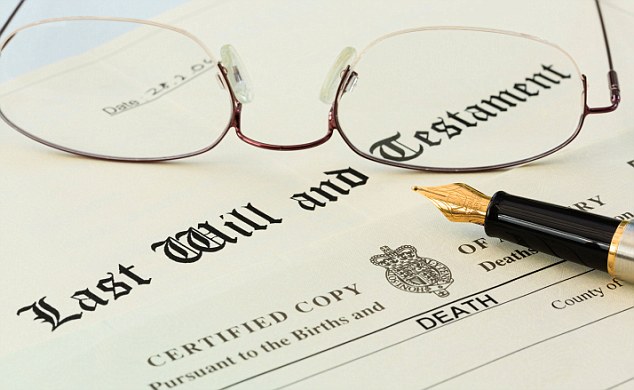Guide to Inheritance Tax: Safeguarding more of what is rightfully yours for future generations
When we die, we like to imagine that we can pass on our assets to our loved ones so that they can benefit from them. In order for them to benefit fully from your assets, it is important to consider the impact of Inheritance Tax.
Inheritance Tax is payable on everything you have of value when you die. This includes your home, jewellery, savings and investments, works of art, cars, and any other properties or land, which includes any that are overseas. But there are certain circumstances if you put assets into certain types of trusts, for example, when Inheritance Tax becomes payable earlier.
Estate matters – what you need to know
 When you die, your assets become known as your ‘estate’. There is normally no Inheritance Tax to be paid if the value of your estate is below the Inheritance Tax nil-rate band (NRB) threshold of £325,000, or you leave everything to your spouse or registered civil partner, or you leave everything to an exempt beneficiary such as a charity. Unmarried partners, no matter how long standing, have no automatic rights under the Inheritance Tax rules.
When you die, your assets become known as your ‘estate’. There is normally no Inheritance Tax to be paid if the value of your estate is below the Inheritance Tax nil-rate band (NRB) threshold of £325,000, or you leave everything to your spouse or registered civil partner, or you leave everything to an exempt beneficiary such as a charity. Unmarried partners, no matter how long standing, have no automatic rights under the Inheritance Tax rules.
Where your estate is left to someone other than a spouse or registered civil partner
(for example, to a non-exempt beneficiary), Inheritance Tax will be payable on the amount that exceeds the NRB threshold. The NRB threshold has been frozen at £325,000 for tax years up to and including 2020/21.
If the value of your estate is above the NRB of £325,000, then the part of your estate that is above this threshold will be liable for tax at the rate of 40%.
Residence nil-rate band (RNRB)
The residence nil-rate band (RNRB), also known as the ‘home allowance’, was introduced in 2017 and now applies where the deceased owned a home, or share of a home, which is inherited by their direct descendants.
This also includes step-children, adopted children and foster children, but not nieces, nephews or siblings. Provided certain conditions are met, the home allowance gives you an additional allowance to be used to reduce the Inheritance Tax against your home.
Tapering away the value of your estate
The RNRB starts to be tapered away by £1 for every £2 if your estate is worth more than £2 million on death. Unlike the standard NRB, it’s only available for transfers on death. It’s normally available if you leave a residential property that you’ve occupied as your home outright to direct descendants.
It might also apply if you’ve sold your home or downsized from 8 July 2015 onwards. If spouses or registered civil partners don’t use the RNRB on first death – even if this was before 6 April 2017 – there are transferability options on second death. The RNRB allowance is currently £125,000 (2018/19 tax year), but it will rise incrementally to reach £175,000 in 2020/21 and in line with the Consumer Price Index thereafter.
Unused NRB on the death of a deceased spouse
If you are a widow or widower and your deceased spouse did not use their entire NRB, the NRB applicable at your death can be increased by the percentage of NRB unused on the death of your deceased spouse, provided your executors make the necessary elections within 2 years of your death.
To calculate the total amount of Inheritance Tax payable on your death, gifts made during your lifetime that are not exempt transfers must also be taken into account. Where the total amount of non-exempt gifts made within seven years of death plus the value of the element of your estate left to non-exempt beneficiaries exceeds the NRB threshold, Inheritance Tax is payable at 40% on the amount exceeding the threshold.
Reduced rate as a result of a charity bequest
 This reduces to 36% if the estate qualifies for a reduced rate as a result of a charity bequest of at least typically 10% of the net estate. In some circumstances, Inheritance Tax can also become payable on the lifetime gifts themselves – although gifts made between three and seven years before death could qualify for taper relief, which reduces the amount of Inheritance Tax payable.
This reduces to 36% if the estate qualifies for a reduced rate as a result of a charity bequest of at least typically 10% of the net estate. In some circumstances, Inheritance Tax can also become payable on the lifetime gifts themselves – although gifts made between three and seven years before death could qualify for taper relief, which reduces the amount of Inheritance Tax payable.
Taper relief applies where tax, or additional tax, becomes payable on your death in respect of gifts made during your lifetime. The relief works on a sliding scale. The relief is given against the amount of tax you’d have to pay rather than the value of the gift itself. The value of the gift is set when it’s given, not at the time of death.
Small gifts not subject to Inheritance Tax liability
HM Revenue & Customs (HMRC) permits you to make a number of small gifts each year without creating an Inheritance Tax liability. Each person has their own allowance, so the amount can be doubled if each spouse or registered civil partner uses their allowances.
You can also make larger gifts known as Potentially Exempt Transfers (PETs) and you could have to pay Inheritance Tax on their value if you die within seven years of making them.
Chargeable Lifetime Transfers (CLT)
Any other gifts made during your lifetime which do not qualify as a PET will immediately be chargeable to Inheritance Tax. These are called ‘Chargeable Lifetime Transfers’ (CLT) which could, for example, be a gift into a discretionary trust.
If you make a gift to someone but keep an interest in it, it becomes known as a ‘Gift With Reservation’ and will remain in your estate for Inheritance Tax purposes when you die.
HMRC lets you give the following as exempt transfers:
Up to £3,000 each year as either one or a number of gifts. If you don’t use it all up in one year, you can carry the remainder over to the next tax year. A tax year runs from 6 April one year to 5 April in the next year
- Gifts of up to £250 to any number of other people – but not those who received all or part of the £3,000
- Any amount from income that is given on a regular basis provided it doesn’t reduce your standard of living. These are known as gifts made as ‘normal expenditure out of income’
- If your child is getting married, you can gift them £5,000. If a grandchild or more distant descendent is getting married, you can gift them £2,500. For a friend or anyone else you know, you can gift £1,000
- Donations to charity, political parties, universities and certain other bodies recognised by the taxman (HM Revenue & Customs)
- Maintenance payments to spouses and ex-spouses, elderly or infirm dependant relatives, and children under 18 or in full- time education.
Setting up an appropriate trust could help
If you would like to make gifts to reduce a potential Inheritance Tax bill but are concerned about losing control of the money, setting up an appropriate trust could help. The rules changed in 2006, making some of them less tax-effective, as a small minority will require you to pay Inheritance Tax even before you have died. However, if appropriate, they can play an important part when planning for Inheritance Tax.
There are now three main types of trusts. Any number of different types of investments can be held in a trust, so it’s essential to obtain financial advice to review your particular situation and requirements.
Bare (Absolute) trusts
With a bare trust, you name the beneficiaries at the outset, and these can’t be changed. The assets, both income and capital, are immediately owned and can be taken by the beneficiary at age 18 (16 in Scotland).
Interest in possession trusts
With this type of trust, the beneficiaries have a right to all the income from the trust, but not necessarily the capital. Sometimes, a different beneficiary will get the capital – say, on the death of the income beneficiary. They’re often set up under the terms of a Will to allow a spouse to benefit from the income during their lifetime, but with the capital being owned by their children. The capital is distributed on the remaining parent’s death.
Discretionary trusts

CWX63F Last Will and Testament document with a Death Certificate, a pair of metal rimmed reading glasses and a fountain pen
Here, the trustees decide what happens to the income and capital throughout the lifetime of the trust and how it is paid out. There is usually a wide range of beneficiaries, but no specific beneficiary has the right to income from the trust.
A few trusts will now have to pay an Inheritance Tax charge when they are set up, at ten-yearly intervals and even when assets are distributed. Proceeds paid outside of your estate If you don’t want to give away your assets while you’re still alive, another option is to take out life cover, which can pay out an amount equal to your estimated Inheritance Tax liability on death. We’ll ensure that the policy is written in an appropriate trust, so that proceeds are paid outside of your estate.
Finally, one of the most important things not to neglect
You should review your Will if the value of your estate exceeds your NRB and you wish direct descendants to benefit from the RNRB. Making a Will is one of the most important things that you can do. The Government lays down strict guidelines on how money is to be paid out if you die without making a Will. By planning in advance, you can establish who you wish to benefit from your estate when you die, minimise any Inheritance Taxpayable and reduce the risk of a dispute.
Safeguarding more of what is yours for future generations
Inheritance Tax is a complicated area, and no one likes to think about their own mortality, so it is a subject that is easy to avoid. Making sure that you’ve made plans for after you’re gone will give you peace of mind.
With professional advice and appropriate planning, it can mean that you are safeguarding more of what is rightfully yours. Everyone’s situation is different – to discuss your circumstances individually, please contact us.
Who are Vizion Wealth?
 Our approach to financial planning is simple, our clients are our number one priority and we ensure all our advice, strategies and services are tailored to the specific individual to best meet their longer term financial goals and aspirations. We understand that everyone is unique. We understand that wealth means different things to different people and each client will require a different strategy to build wealth, use and enjoy it during their lifetimes and to protect it for family and loved ones in the future.
Our approach to financial planning is simple, our clients are our number one priority and we ensure all our advice, strategies and services are tailored to the specific individual to best meet their longer term financial goals and aspirations. We understand that everyone is unique. We understand that wealth means different things to different people and each client will require a different strategy to build wealth, use and enjoy it during their lifetimes and to protect it for family and loved ones in the future.
All of us at Vizion Wealth are committed to our client’s financial success and would like to have an opportunity to review your individual wealth goals. To find out more, get in touch with us – we very much look forward to hearing from you.
DISCLAIMER
LEVELS AND BASES OF, AND RELIEFS FROM, TAXATION ARE SUBJECT TO CHANGE, AND THEIR VALUE DEPENDS ON THE INDIVIDUAL CIRCUMSTANCES OF THE INVESTOR.

